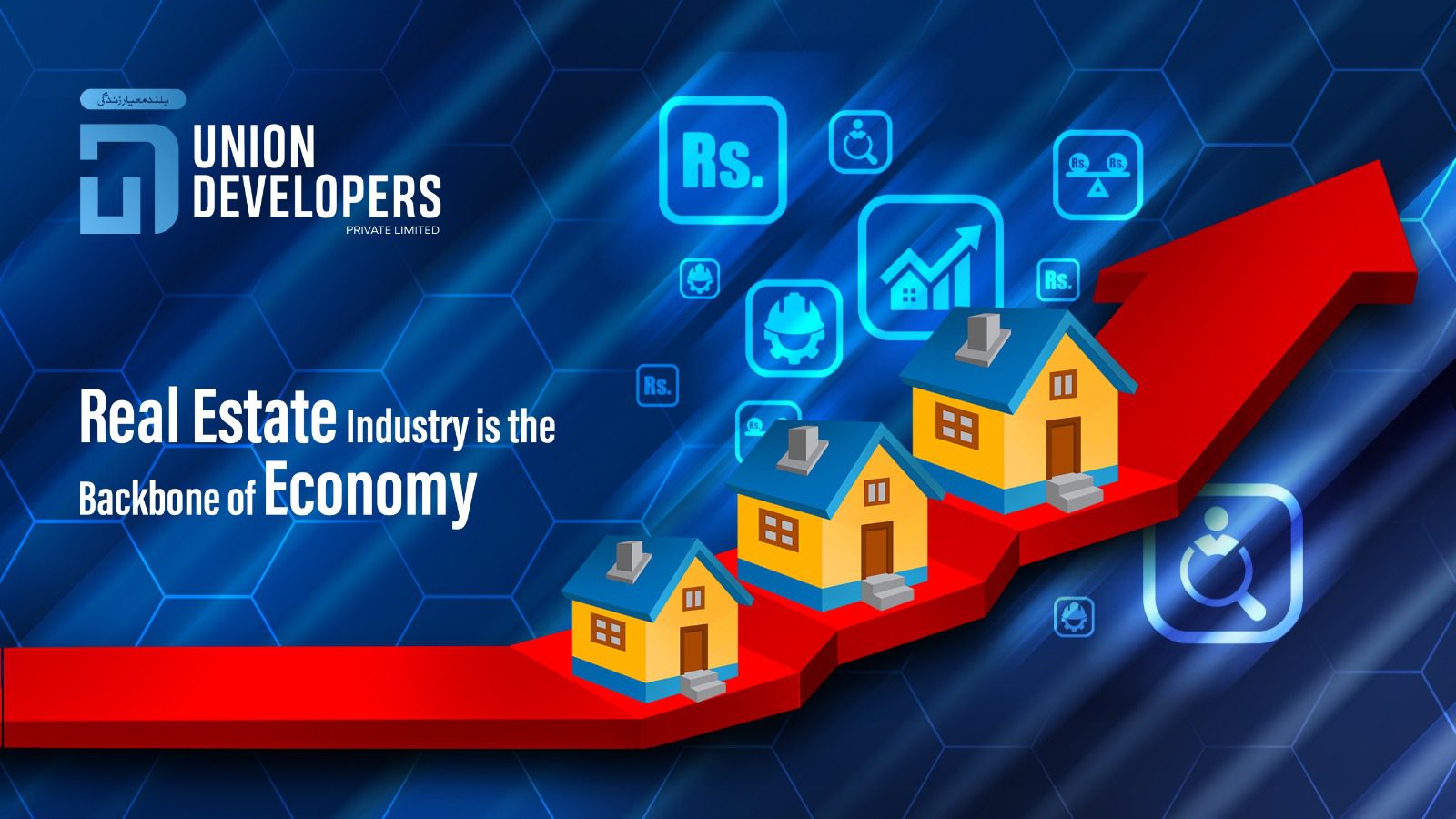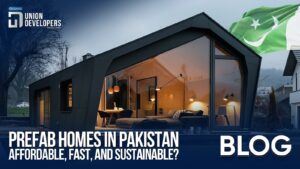It’s not merely the plots, apartments, or houses on sale; it’s more about building lifestyle, society & nation
From town planning to land development, infrastructure design to construction, and buildings to live communities; 2000+ Industries are associated with this trade
Historic preface of Living:
Picture a man cladded in animal skin and leather holding a bone fashioned into a weapon and we think of the caveman; the modern man is dressed fashionably in cotton or other fabric that is as functional as it is decorative. The Medieval Man, Metro Man, Urban Man, and many others are an example of how our living standards define not only our intelligence on the historic chart of the human race but also on the timeline of progress, particularly in living patterns and conditions.
A more advanced civilization is indicative of higher intelligence and that can be seen in people’s high standard of living. The standard of living is defined by modern amenities like healthy and sustainable developments with low to zero carbon emissions, resulting in a healthier bunch of humans. Facilities like schools where our children seek education to further the process of human development, contribute to a healthier environment. Hospitals in close vicinity, with excellent healthcare including efficient ambulance service, ensure the value of life in the community.
Whenever such a community emerges there is a mass migration towards it; people in search of a better life for themselves and for their children, flock to these urban living communities that gain popularity.
Real Estate Revolution in the 20th Century:
After Second World War, a lot of areas were destroyed due to heavy bombing, and people were in a dire need of housing while also suffering from the economic crisis. The idea of development, construction, and building housing communities on land that is safe for living purposes, came to the surface in the 1940s and 60s, starting in Scotland. People chose to move into closely-knit, small but functional townhouses to accommodate themselves. A large number of people moved to centralized shelters in a very short time.
At this point, the real estate industry entered the picture, taking responsibility for developments and constructions, and fulfilling the prerequisites for private and commercial buildings and housing schemes. These developments brought economic stability resulting in higher employment and healthy nations. The real estate industry has an essential role in strengthening economic growth, especially in a developing country like Pakistan. It generates a substantial amount of revenue for the economy because it binds with other cooperating industries in the construction process, like cement, iron, wood, interiors from furnishing, electric appliances, decorations, etc, and it remains the backbone of the country’s economy as more than 2000 industries are intertwined with this sector only.
Real Estate Catalyst for Socio-economic Development:
At the same time, not only in Pakistan but worldwide and especially in low-income countries, this industry creates job opportunities for people coming from remote and rural areas to cities. If we take a deeper look at housing schemes and projects, it helps refugees, immigrants, the homeless, and internally displaced people. Whereas it is associated with economic growth, it also brings social and civic development. Housing schemes provide clean water, adequate sanitation, a sense of community, safety, and protection to people, in addition to a decent abode.
Many housing-related activities are known to contribute directly to achieving broader socio-economic development goals. This industry also created real estate agents, who work on commission basis. They are qualified and well-versed in the marketing and sales of properties, which is always an incentive for all parties involved, driving the economy toward a healthier and more lucrative direction. They are also responsible for dealing with all technicalities and legalities of the transfer of ownership of a property or estate, from one person to the next.
Impact of Real Estate in Pakistan:
The economy is known as the first pillar of the state. It is strengthened as people earn money and use it in different forms of investments to increase their capital. As the threat of nuclear war looms ever closer currently in Eastern European states, a large number of foreign investors are preferring to invest in Pakistan, especially in the real estate industry, as this sector is booming and returning their money with nice amounts of profit. Investment in the real estate industry is known to have multiple effects of generating wealth and promoting the economy and employment.





